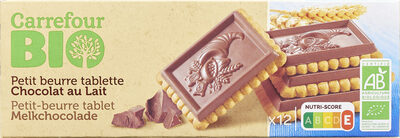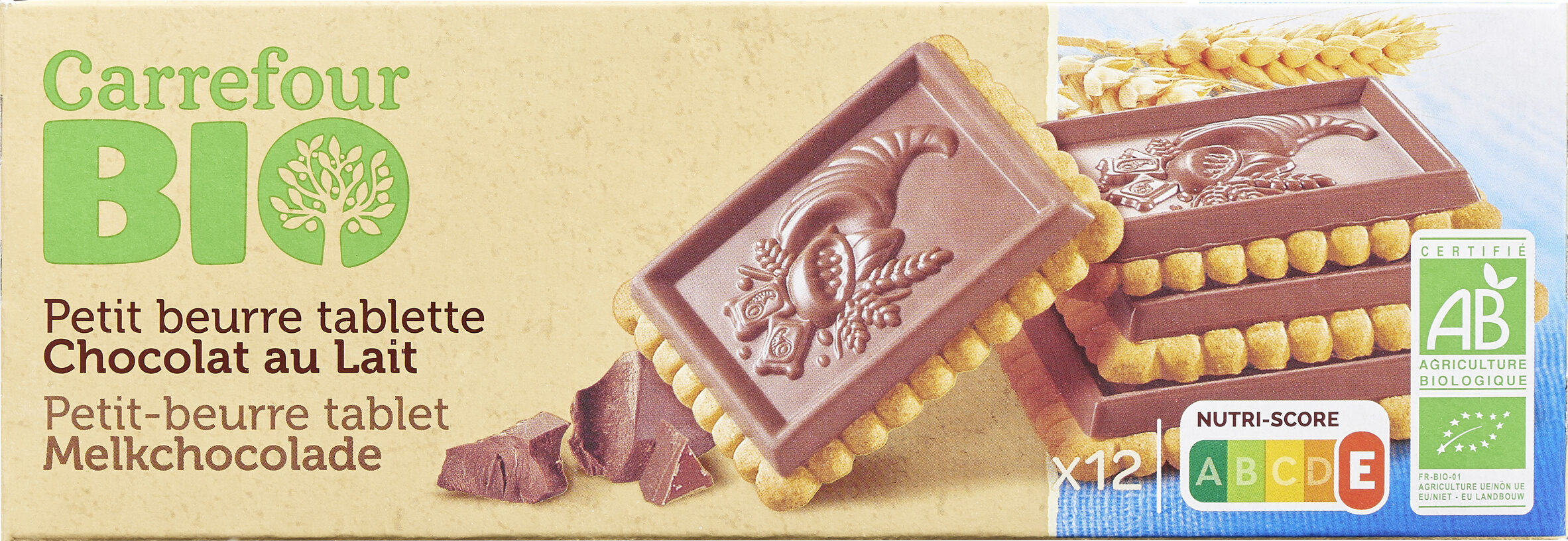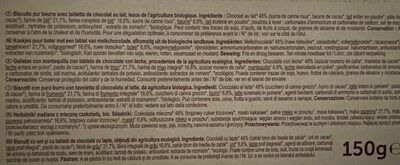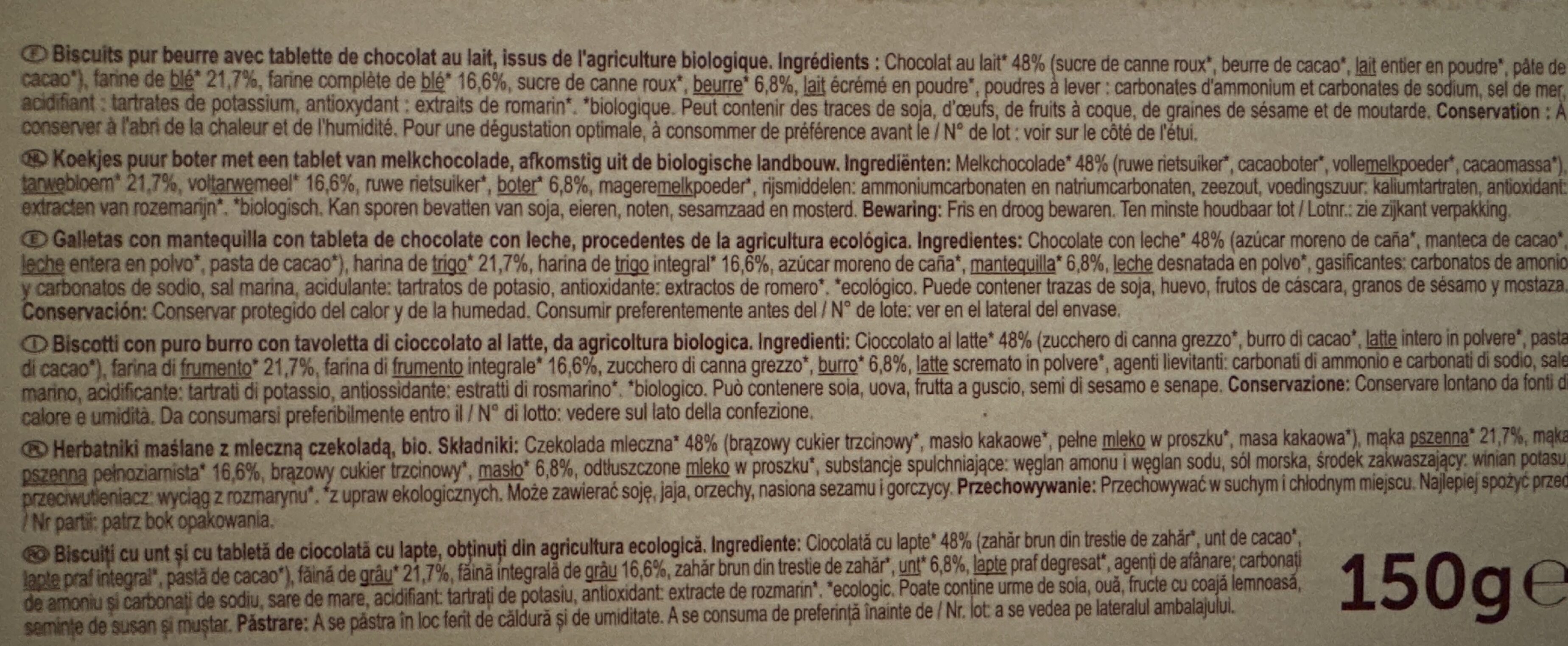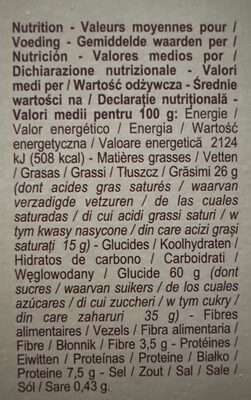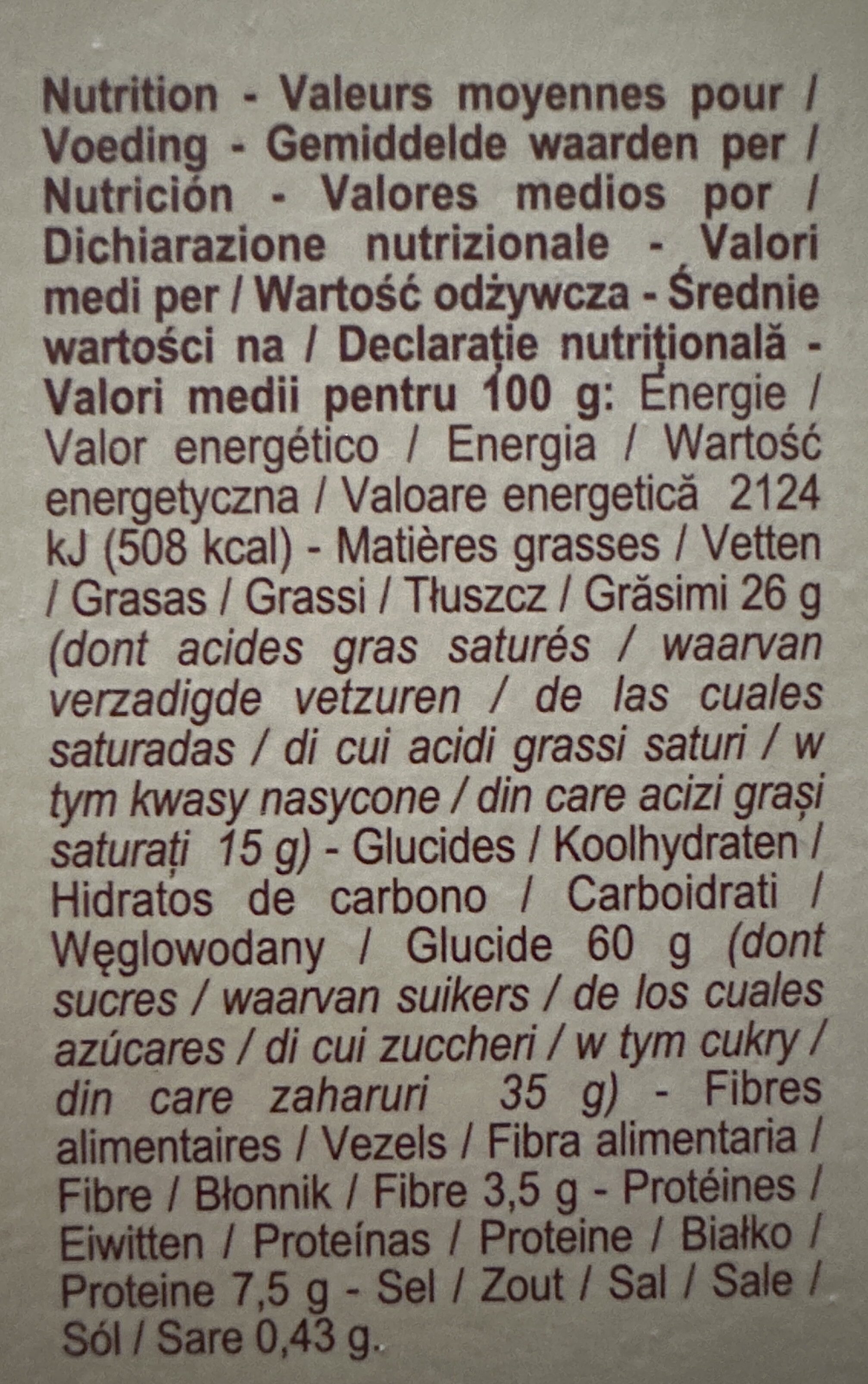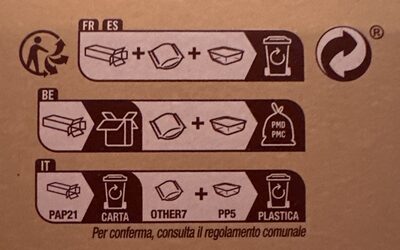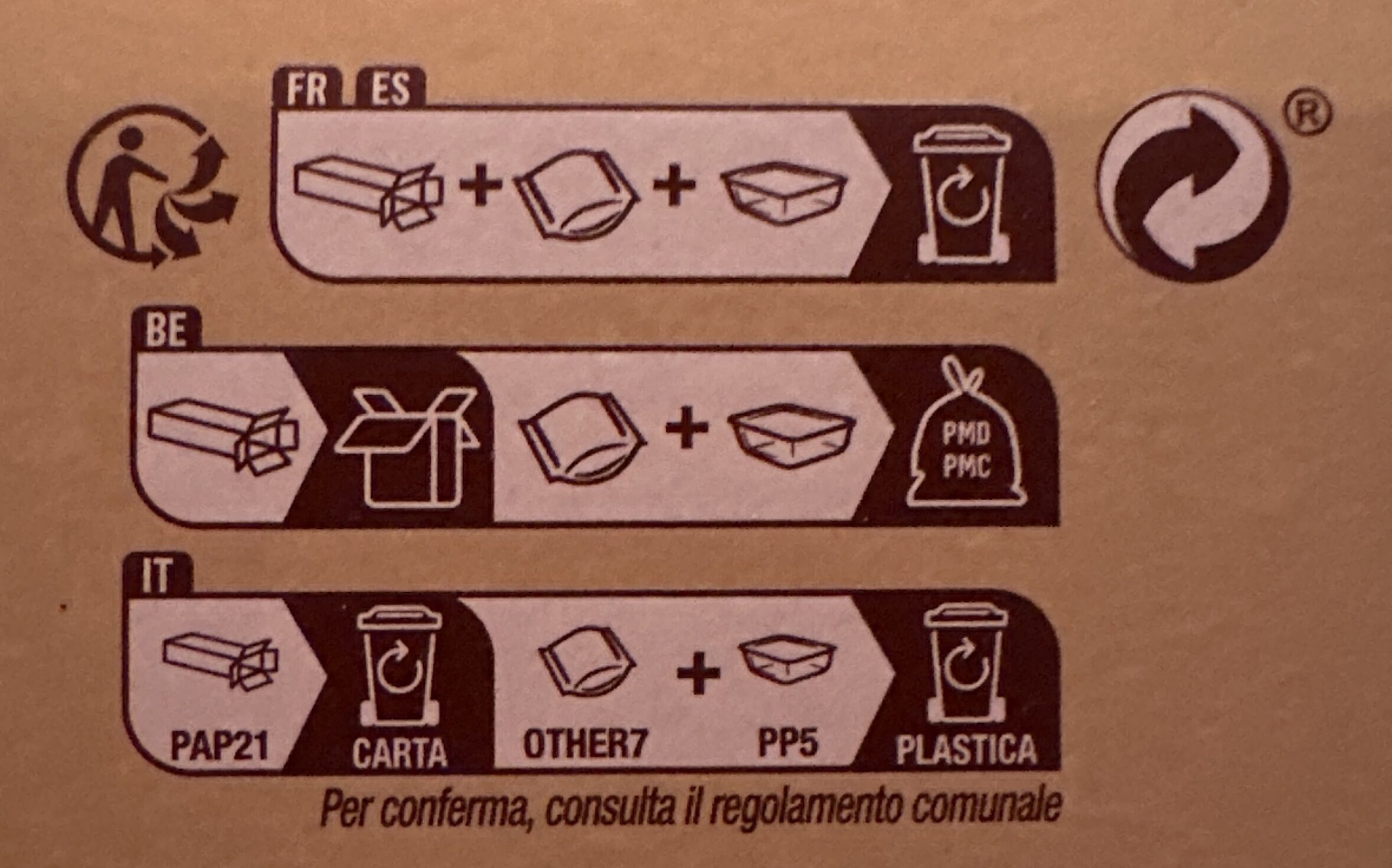Biscuits chocolat au lait - Carrefour Bio - 150 g
Algunes de les dades d’aquest producte les ha proporcionat directament el fabricant Carrefour.
Codi de barres: 3560070682683 (EAN / EAN-13)
Nom comú: Biscuits pur beurre avec tablette de chocolat au lait, issus de l'agriculture biologique.
Quantitat: 150 g
Empaquetament: Plàstic, en:Box, Cartó, en:Tray, fr:Film plastique
Marques: Carrefour Bio
Categories: Snacks, Aperitius dolços, Galetes i pastissos, Galetes, Galetes de xocolata, en:Milk chocolate biscuits, en:Petit-Beurre, en:Biscuit with a chocolate bar covering, en:Biscuit with a milk chocolate bar covering
Etiquetes, certificacions, premis:
Orgànic, Orgànic UE, Agricultura No-UE, Agricultura UE, Procedent d'agricultura UE/no UE, FR-BIO-01, Punt verd, Fet a França, Comptador Nutricional, Grau E NutriScore, AB Agriculture Biologique, Triman



Origen dels ingredients: Unió Europea, Unió Europea i no Unió Europea, fr:Blé, fr:Sucre de canne roux et fèves de cacao de diverses origines
Llocs de fabricació o processament: Biscuiterie de la Tour d'Albon (Filiale Groupe Biscuits Bouvard) - Zone Industrielle Rapon - 26140 Anneyron, Drôme, Auvergne-Rhône-Alpes, France
Codi de traçabilitat: EMB 26010 - Anneyron (Drôme, France)
Botigues: Carrefour, carrefour.fr
Països on es va vendre: França, Itàlia, Polònia, Romania, Espanya, fr:Bélgica, fr:Francia, fr:Suiza
Matching with your preferences
Altres dades
Condicions de conservació: À conserver à l'abri de la chaleur et de l'humidité. Pour une dégustation optimale, à consommer de préférence avant le / N° de lot : voir sur le côté de l'étui.
Servei al client: Interdis - TSA 91431 - 91343 MASSY Cedex France
Report a problem
Fonts de dades
Producte afegit per miles67off
Última modificació de la pàgina del producte per foodless.
La pàgina del producte, també editada per beniben, driveoff, ecoscore-impact-estimator, g123k, inf, jacob80, kiliweb, lorsitog, musarana, openfoodfacts-contributors, org-carrefour, packbot, quechoisir, quentinbrd, roboto-app, scanbot, sebleouf, segundo, spotter, tacite, thaialagata, yuka.UUpBbEhhVW1wLzA2d3NjZ29Sbno0dHhONkppVlVUeVJkYmNmSVE9PQ, yuka.VEs4alRvYzRyZllEa3RvMTBBSEt3Y0JQeThEMlUxeU9jL0FLSVE9PQ, yuka.VnZCY012Z050OGhRd2NJZnBCYk82dlI1enI2TVcwYXFEOFU3SVE9PQ, yuka.WUtVQ05aMHJpK0l1eFBZWnpncm85L055MkppMEFYT1VPOUlESVE9PQ, yuka.WnFFNkZZRWppOXRUbHNJUm9TaU5vTlJRNExPU0FHSzVKOFFmSWc9PQ, yuka.ZG9NN09xWmR2ZFV1d2ZGajVqcmZvZXAwd1krVWZHMnBLOGNzSVE9PQ, yuka.ZUtRR1Nwb2FxdFFFdmNBKzdoald5TzFLLzYyZ2JVN21Gc1JJSVE9PQ, yuka.ZWExWlA2RWZ0TjhRaHZFVjF4ZVB3TjEyLzZHQ2VqeVVlOG9qSVE9PQ, yuka.sY2b0xO6T85zoF3NwEKvlhwcedfs_jX4FRLvlECAy_aAIZDhXfNy5NjmMqs, yuka.sY2b0xO6T85zoF3NwEKvlkh-fvbH_zCVBSDWxHKB49GBDrPFesF4vrD-Fas, yuka.sY2b0xO6T85zoF3NwEKvlmNmT-PvvzKVHh3TwF2i--WRJZrFWo5R4JT3Pas, yuka.sY2b0xO6T85zoF3NwEKvlmd7fNnUuy_KZhLSvGuJ19PQCpjqYMxO4ar5Gas, yuka.sY2b0xO6T85zoF3NwEKvlnZ3WeHYph7CE0TSwUPU9vGQK8O2RM99ubSgMqs, yuka.sY2b0xO6T85zoF3NwEKvlndgaOfFgiDvNBfkx2ObzfbfcLHne49DvajrK6s.
